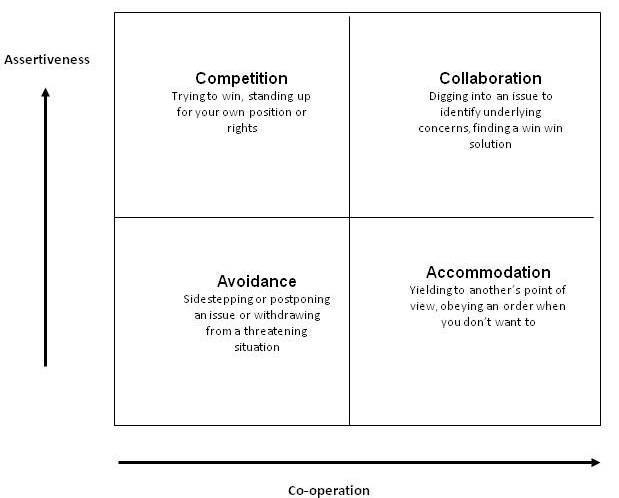Lesson 10: Confrontation
Attention

Sometimes we don't agree with the person we are interviewing or counseling. While we have nurtured a sense of multicultural awareness and alternative points of view, we might still want to "change someone's mind" about something when they are seeing things from a particular point of view or their thoughts are irrational.
Picking how and when to do this are key questions for the counselor. It is somewhat of a test of how good a relationship you have developed up until now!
Learning Outcomes
Upon completion of this lesson's material, students will be able to:
- Identify personal "problem solving" and "conflict avoiding" styles of interaction
- Reflect on the role that your personal style may play in your own efforts to confront your clients
- Reflect on personal stories regarding your own experiences with confrontation
Teaching
Confrontation
Confrontation is one of the most difficult skills for the same reason it is hard to reflect feeling...we are not used to dealing with feelings and many of nurture a pretty good habit of AVOIDING conflict. In confrontation, you are taking the risk that conflict might arise.
Styles of Confrontation
The most widely understood model for Styles of Confrontation is the Thomas-Killman model. This particular model focuses on the dimensions of the "importance of the issue" and the "importance of the relationship" This next graphic represents the basic styles of each of the four quadrants..."Compromising Style" is a combination of all of them.

Another model to assist us in understanding our own style is the Myers-Briggs Typology.
Click here to download an Excel file which contains a shortened version of the Myers-Briggs Typology test. To assist in your personal interpretation of your Myers-Briggs Typology Test...visit TypeLogic But, yes...there is an app for this...the Jungian Type Questionnaire!
This app simply provides a way to take the test, get your letter combination and then some additional information on the interpretation of the results. There are literally thousands of websites on how to use these scores. Five Tips for using the Using the MBTI in Conflict Using the Myers-Briggs Type Indicator to Enhance Workplace Communication |
Opportunities for Confrontation in the Counseling and Interviewing Process
- Immobility
- Blocks
- Repetitive compulsions
- Inability to achieve goals
- Lack of understanding
- Limited behavioral repertoire
- Limited life script
- Impasse
- Lack of motivation
Steps in Confrontation
- Identify the conflict...(call it what it is)
- Point out the issue
- Evaluate the change
Medications and Mental Health
One of the more common issues that comes up with many of our clients centers around their relationship with the psychotropic medications that they take.
While compliance with doctors' orders is a problem across all populations, it is particularly serious among this population. A client who really "needs" to be on his meds can get into a lot of trouble when they are not on them. This is not only a personal/rehabilitative/medical issue, but a public issue as well.
Assessment
Lesson 9 Quiz
- Discuss your thoughts about how you might approach the use of medications in psychiatric treatment. Consider that you will be dealing with a number of clients who would prefer that they didn't have to take the medications they are taking. How can we be psychosocial and still convince people to do what is best for them?
Lesson 9 Discussion
I would like you to review the conflict resolution models (and the Myers-Briggs test if you can complete that one as well) and find how you personally deal with conflict. Conflict in the counseling process can be emotional and thus we might avoid it the same we discussed how we avoid feelings (in the previous lesson). Discuss how do you feel that your confrontation/conflict resolution style may positively and/or negatively impact your work with clients.
Practice Session 2 - Confrontation
In your first Practice Session you are going to work on applying the skills of MI with a focus on confrontation. Review the information in the Practice Session Instructions for more details.

